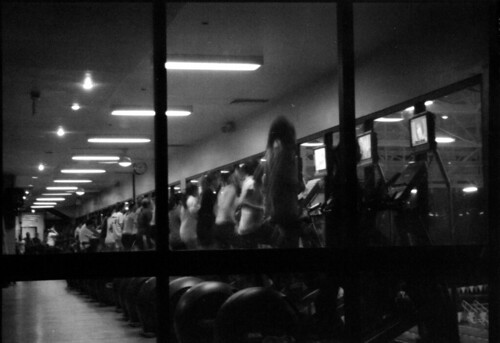In the '70s, my parents had an affinity for American cars. One of our cars was a '79 powder blue (!) faux wood paneled (!!) Caprice Classic station wagon. We took innumerable road trips in that car (New York, DC, Smoky Mountains, Wisconsin Dells, etc.).
And this affinity is not reserved for those who live in the U.S. alone. In Iran, Amir's dad drove his beloved (manual transmission) Chevy Nova for easily 30 years. He treated it like his third child. And it was.
I was too young to know if my mom's car was a good performer - all I know is that I spent a lot of time in it and have warm fuzzy memories of it much like I have warm fuzzy memories of going to a Sears store as a child though I may not have those same feelings today.
I love this commercial.
I was half paying attention to the TV this past weekend when this spot caught my eye and within a moment, I was in love. I've seen it many times now. Please watch it and we'll continue our chat.
What's the big deal?
And this affinity is not reserved for those who live in the U.S. alone. In Iran, Amir's dad drove his beloved (manual transmission) Chevy Nova for easily 30 years. He treated it like his third child. And it was.
I was too young to know if my mom's car was a good performer - all I know is that I spent a lot of time in it and have warm fuzzy memories of it much like I have warm fuzzy memories of going to a Sears store as a child though I may not have those same feelings today.
I love this commercial.
I was half paying attention to the TV this past weekend when this spot caught my eye and within a moment, I was in love. I've seen it many times now. Please watch it and we'll continue our chat.
In this post, I told you of Amir's love of porridge and that every time I make it, he's instantly transported to a happy place. The effect is instantaneous and I'm never tired of how this very simple food causes such a transformation.
I love the story of the father's old Chevy because his reaction and transformation is like Amir's. The father's reaction was about more than just the car. It was his history, it was his identity, it was his freedom and a host of other things. Just seeing him grab his heart (which, between us, concerned me) shows that his connection to the car and to the brand is more than just it was a vehicle that helped him get from A to B.
The car and the Chevy brand are inextricably linked to his identity and when both came back into his life, it was extremely emotional. And not just for him... his children took five years to find the car which shows an obvious love for their father but, also, just as deep an emotional connection to that car.
I love the story of the father's old Chevy because his reaction and transformation is like Amir's. The father's reaction was about more than just the car. It was his history, it was his identity, it was his freedom and a host of other things. Just seeing him grab his heart (which, between us, concerned me) shows that his connection to the car and to the brand is more than just it was a vehicle that helped him get from A to B.
The car and the Chevy brand are inextricably linked to his identity and when both came back into his life, it was extremely emotional. And not just for him... his children took five years to find the car which shows an obvious love for their father but, also, just as deep an emotional connection to that car.
Don't be afraid of your softer side.
I love this commercial because it did not display one new Chevy model. I love it because it didn't directly talk about Brand Chevrolet all that much either. It didn't need to do that. It was a narrative of long standing love, legacy and loyalty. It's as if Chevy was secure in its legacy (without hubris) to shift the focus from itself to the love affair between a man, his children and his car.
And they told the story better than any manufactured family centric commercial could. How do I know? I instantly remembered every single road trip and adventure in our old station wagon. Powerful stuff.
What's the lesson here?
Be an emotional brand. Be a brand that creates strong bonds that go beyond the nuts, bolts, features and benefits of how you serve your customers. Be a brand that showcases our customers while you stand in the background. It pays off.
Please share your thoughts - I'd love to hear from you.
Parissa Behnia
Idea Chef




